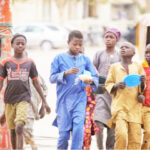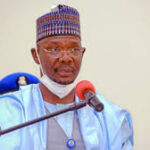Experts have urged political parties and other stakeholders to involve more women in their strategies to prevent violence and achieve a peaceful and credible 2019 general elections.
They gave the advice in Abuja on Tuesday at a training and capacity building workshop for Gender-Based CSOs organised by the National Institute for Policy and Strategic Studies (NIPSS) and the European Union (EU) with the themed “Gender-Based Perspectives and Responses to Political Conflicts and Violence”.
In his opening address, the Director of Research of the institute and Chief Operating Officer of the Political Parties Leadership and Policy Development Centre (PPLPDC), Prof. Habu Galadima, said it is important for women to be actively involved in the working to entrench peace since they are also the most affected in time of crisis.
“The women can start by sensitizing the men and children, they owned the men and they owned the children. They can begin to sensitize them on the dangers of political conflicts and violence. The consequences are usually heavier on the women than men. You can see that it is the women that mostly become widows and so it is important that they sensitize the men to embark on issue-based campaigns rather than violent provoking campaigns,” Galadima said.
On her part, Prof. Olufunmilayo Para-Mallam of the Directorate of Studies, NIPSS, urged women to develop confidence in themselves and build their capacity to bridge the gap in politics.
She said, “Modern democratic society must to develop a new social contract in which men and women work in equality and complementarily, enriching each other mutually from their differences. Building bridges for a win-win solution gender-inclusive & responsive policy & politics without reverse discrimination should be implemented.”
Also speaking, an expert in mainstreaming gender, who represented Partners West Africa Nigeria (PWAN), Dr Eleanor Nwadinobi, urged political parties to encourage gender equity and balance in selection of their candidates.
Nwadinobi said political parties should support an enabling legislative environment to achieve gender equality and bridge gaps in political representation.
She noted that there were only 21 women members in the House of Representatives out of its over 300 members which represented only 5.6 per cent.
She urged the Independent National Electoral Commission (INEC) to ensure electoral processes, policies and plans were gender responsive.
“Women are mostly mobilized to dance and cheer politicians during political rallies and campaigns; women deserve more than that from their various political parties,” she said.

 Join Daily Trust WhatsApp Community For Quick Access To News and Happenings Around You.
Join Daily Trust WhatsApp Community For Quick Access To News and Happenings Around You.


